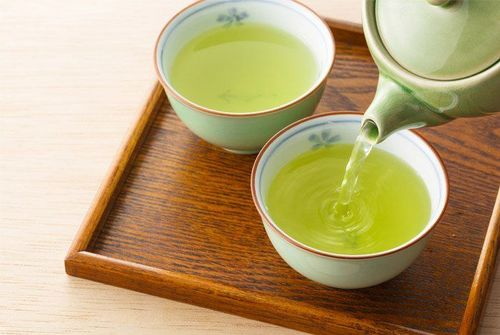Content Menu
● Understanding Green Tea Extract
● Recommended Dosages
>> For General Health Benefits
>> For Weight Management
>> For Cardiovascular Health
>> For Cognitive Function
● Factors Affecting Dosage
● Potential Benefits of Green Tea Extract
>> Weight Management
>> Cardiovascular Health
>> Cognitive Function
>> Antioxidant Properties
>> Potential Cancer Prevention
● Safety Considerations and Side Effects
>> Liver Health
>> Caffeine Sensitivity
>> Iron Absorption
>> Pregnancy and Breastfeeding
● How to Choose and Use Green Tea Extract
● Conclusion
● FAQ
>> 1. Can I take green tea extract instead of drinking green tea?
>> 2. How long does it take to see results from taking green tea extract?
>> 3. Are there any drug interactions with green tea extract?
>> 4. Is it safe to take green tea extract long-term?
>> 5. Can green tea extract help with acne or skin health?
● Citations:
Green tea extract has gained popularity as a dietary supplement due to its potential health benefits. However, determining the optimal daily dosage can be challenging, as it depends on various factors such as individual health goals, body composition, and existing medical conditions. This article will explore the recommended dosages of green tea extract, its potential benefits, and important considerations for safe consumption.

Understanding Green Tea Extract
Green tea extract is a concentrated form of green tea, containing high levels of polyphenols, particularly catechins. The most abundant and well-studied catechin in green tea is epigallocatechin gallate (EGCG), which is believed to be responsible for many of its health benefits[1].
Recommended Dosages
The optimal dosage of green tea extract can vary depending on the intended health benefits and individual factors. Here are some general guidelines based on scientific research:
For General Health Benefits
For overall health maintenance, consuming 3-5 cups of green tea per day, which provides approximately 240-320 mg of polyphenols, is often recommended[3]. When using green tea extract supplements, a daily intake of 250-500 mg is generally considered safe and effective[1].
For Weight Management
Studies have shown that higher doses of green tea extract may be beneficial for weight loss. Dosages ranging from 400-500 mg of EGCG per day have been associated with modest weight loss effects[11]. Some research suggests that doses up to 800 mg of EGCG daily may be effective, but it's important to note that such high doses may increase the risk of side effects[10].
For Cardiovascular Health
To potentially improve cardiovascular health, studies have used green tea catechins or extract in doses ranging from 160 to 2,488 mg per day, often divided into multiple doses over 2 weeks to 3 months[9].
For Cognitive Function
A study focusing on cognitive impairment used two 430 mg capsules (each containing 360 mg of green tea extract and 60 mg of L-theanine) twice daily, resulting in a total daily dose of 1,440 mg of green tea extract[9].
Factors Affecting Dosage
Several factors can influence the appropriate dosage of green tea extract:
1. Body weight
2. Individual tolerance
3. Existing health conditions
4. Caffeine sensitivity
5. Medication interactions
It's crucial to consult with a healthcare professional before starting any new supplement regimen, especially if you have pre-existing health conditions or are taking medications.

Potential Benefits of Green Tea Extract
Green tea extract has been associated with numerous health benefits, including:
1. Weight management
2. Improved cardiovascular health
3. Enhanced cognitive function
4. Antioxidant properties
5. Potential cancer prevention
Weight Management
Green tea extract may help boost metabolism and increase fat oxidation, potentially aiding in weight loss efforts. A meta-analysis found that consuming green tea supplements significantly reduced body weight and body mass index (BMI)[7].
Cardiovascular Health
The catechins in green tea extract have been shown to help reduce blood pressure and improve blood lipid levels, which may promote heart health[1]. One study found that taking 379 mg of green tea extract daily for three months led to significant decreases in blood pressure and improvements in cholesterol levels[5].
Cognitive Function
Some research suggests that green tea extract may help improve brain function and protect against age-related cognitive decline. The combination of caffeine and L-theanine in green tea extract may enhance attention and memory[9].
Antioxidant Properties
Green tea extract is rich in antioxidants, which can help protect cells from damage caused by free radicals. This may contribute to overall health and potentially reduce the risk of various chronic diseases[2].
Potential Cancer Prevention
While more research is needed, some studies suggest that the antioxidants in green tea extract may have cancer-preventive properties. For example, one study found that women who drank 5 or more cups of green tea per day had a lower risk of colorectal cancer compared to non-tea-drinkers[3].
Safety Considerations and Side Effects
While green tea extract is generally considered safe for most people when taken in moderate amounts, there are some important safety considerations to keep in mind:
Liver Health
High doses of green tea extract, particularly when taken on an empty stomach, have been associated with liver damage in some cases. It's recommended to take green tea extract with food and not to exceed 800 mg of EGCG per day[4][10].
Caffeine Sensitivity
Green tea extract contains caffeine, which can cause side effects such as insomnia, nervousness, and increased heart rate in sensitive individuals. Caffeine-free products are available for those who wish to avoid these effects[3].
Iron Absorption
The catechins in green tea extract may interfere with iron absorption. If you have iron-deficiency anemia or are at risk for it, it's best to consume green tea extract between meals rather than with food[9].
Pregnancy and Breastfeeding
Pregnant and breastfeeding women should consult with their healthcare provider before taking green tea extract supplements, as high doses of caffeine may pose risks to the developing fetus or infant[9].

How to Choose and Use Green Tea Extract
When selecting a green tea extract supplement, consider the following tips:
1. Look for products standardized to contain a specific amount of EGCG or total catechins.
2. Choose supplements that have been third-party tested for purity and potency.
3. Start with a lower dose and gradually increase if needed, under the guidance of a healthcare professional.
4. Take green tea extract with food to minimize the risk of liver-related side effects.
5. Be consistent with your dosage and timing for optimal results.
Conclusion
Green tea extract can be a valuable addition to a healthy lifestyle, offering potential benefits for weight management, cardiovascular health, and overall well-being. The recommended dosage of green tea extract typically ranges from 250-500 mg per day for general health benefits, with higher doses of up to 800 mg of EGCG used in some studies for specific health goals.
However, it's crucial to approach green tea extract supplementation with caution and awareness of potential side effects, particularly regarding liver health. Always consult with a healthcare professional before starting any new supplement regimen, especially if you have pre-existing health conditions or are taking medications.
By following recommended dosages, taking supplements with food, and being mindful of your individual needs and sensitivities, you can safely incorporate green tea extract into your daily routine and potentially reap its many health benefits.

FAQ
1. Can I take green tea extract instead of drinking green tea?
Green tea extract can be a convenient alternative to drinking multiple cups of green tea daily. However, whole green tea contains additional beneficial compounds and provides hydration. If possible, it's best to include both forms in your diet for optimal benefits.
2. How long does it take to see results from taking green tea extract?
The time it takes to see results can vary depending on the specific health benefit you're seeking and individual factors. Some studies have shown effects within 8-12 weeks of consistent use, but it may take longer for some benefits to become noticeable.
3. Are there any drug interactions with green tea extract?
Yes, green tea extract can interact with certain medications. It may affect the absorption of some drugs and increase the effects of stimulants. Always consult with your healthcare provider about potential interactions before starting green tea extract supplementation.
4. Is it safe to take green tea extract long-term?
While green tea extract is generally considered safe for long-term use at recommended doses, it's important to monitor for any adverse effects and have regular check-ups with your healthcare provider. Long-term use of high doses may increase the risk of liver problems in some individuals.
5. Can green tea extract help with acne or skin health?
Some studies suggest that the antioxidants in green tea extract may help improve skin health and reduce acne. However, more research is needed to determine the optimal dosage and application method for skin-related benefits.
Citations:
[1] https://www.healthline.com/nutrition/10-benefits-of-green-tea-extract
[2] https://pmc.ncbi.nlm.nih.gov/articles/PMC6412948/
[3] https://www.mountsinai.org/health-library/herb/green-tea
[4] https://www.canada.ca/en/health-canada/services/food-nutrition/public-involvement-partnerships/notice-modification-list-permitted-supplemental-ingredients-permit-use-green-tea-extract-supplemental-ingredient-foods/document.html
[5] https://health.clevelandclinic.org/green-tea-extract-a-better-way-to-boost-energy-or-not
[6] https://pubmed.ncbi.nlm.nih.gov/29580974/
[7] https://consensus.app/questions/much-green-take-daily/
[8] https://www.medicalnewstoday.com/articles/269538
[9] https://www.drugs.com/npp/green-tea.html
[10] https://www.peacehealth.org/medical-topics/id/hn-2102007
[11] https://examine.com/supplements/green-tea-extract/































